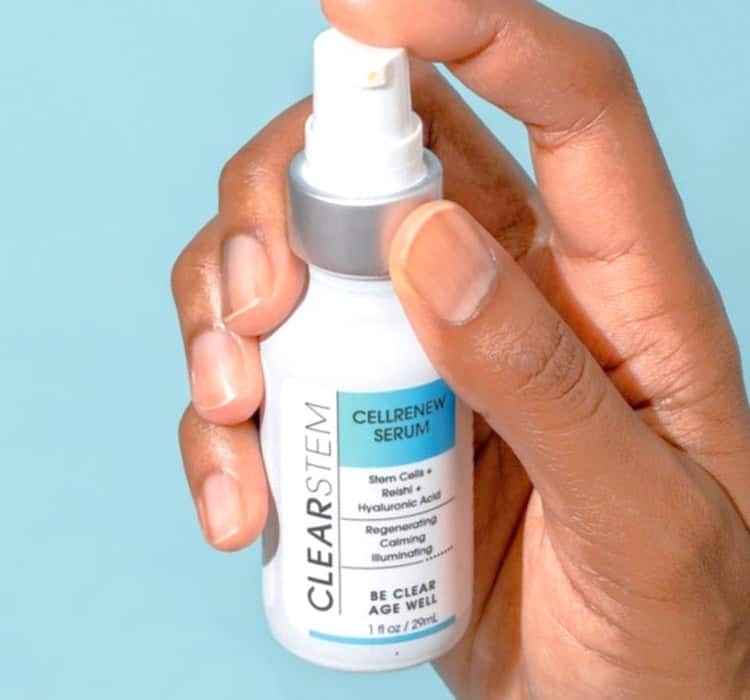When it comes to taking care of your skin, certain products and ingredients should always be staples in your routine, no matter your skin type. Lately, I’ve been seeing a lot of hype around collagen products, particularly collagen serums – certain dermatologists swear by it, touting not just its anti-aging properties but its overall potency in skin nourishment. Others remain skeptical about its benefits, claiming that collagen is simply the latest must-have skincare fad.
Nonetheless, according to certain studies, collagen can boost hydration, protect the skin against harmful pathogens, and even protect against acne. But does collagen serum work, and is it worth adding to your skincare routine? Let’s take a look.
What Is Collagen?
Before I’m able to answer the question “does collagen serum work?” it’s important to first explain what collagen is, and how it functions in the body.
So, what exactly is collagen?
The word collagen originates from the Greek root “Kolla,” which in English translates as the word “glue.” This pretty much sums up what collagen does in the body: collagen is a protein that holds things together and keeps your skin supple, tight, and firm, as well as elastic. You can find collagen almost everywhere in the body: in the bones, joints, muscles, blood vessels, in your ligaments, and, of course, the skin.
Unfortunately, the body’s natural collagen production decreases with age. Around your mid-twenties, the skin becomes less firm, and you might notice some small signs of aging such as fine lines around the forehead, eyes, and mouth: this occurs as the body’s collagen production slows down.
What Is Collagen Used For?
When it comes to skincare and cosmetic purposes, collagen is used to increase skin cell turnover: increasing skin turnover helps decrease visible signs of aging such as fine lines and wrinkles, as well as providing firmness and elasticity. Collagen also has a wide range of skin benefits when applied topically, ranging from intense hydration to increased skin radiance.
Collagen can be used topically, as an oral supplement and is also used in cosmetic and reconstructive surgery to fill loose skin, wrinkles, and various forms of scarring. Collagen is also now used in various skincare products, such as collagen serums. These serums are made from a variety of different ingredients and its extremely important to scrutinize the label if you are going to use a collagen serum. The quality of the collagen is extremely important and collagen can be extracted animals, plants, and even snail mucin!
Does Collagen Serum Work?
When applied topically, collagen serum can provide many benefits to the skin:
Benefits of collagen serum for the skin:
- Provides nourishing hydration
- Supports skin’s lipid barrier
- Increases firmness, tightness, and elasticity at the skin’s surface
- Provides antioxidant protection
- Anti-bacterial protection = fewer bacteria to clog pores and cause acne
While a collagen serum can help nourish the skin and create the appearance of smooth, supple skin, topically applied collagen can’t fully penetrate into the dermis and boost the body’s collagen production. This means that the benefits you see when using a collagen serum are not long-lasting: the collagen sits on the skin, unable to be absorbed into the skin’s layer.
Therefore when buying a collagen serum, it’s best to opt for a product that has other uses, such as a brightening serum or a collagen serum with anti-acne properties, such as CELLRENEW Collagen Infusion Serum. This serum blends the hydrating benefits of hyaluronic acid with collagen, alongside palmetto, green tea, and reishi mushroom: the nourishing blend in this serum will help stabilize your skin’s oil production without clogging your pores.
So, when asking “does collagen serum work,” it’s important to be realistic about your expectations. While collagen serum can certainly provide lots of skincare benefits, it’s not going to provide an overnight miracle or cure all your skincare woes. Collagen serum can simply work on the surface of the skin to improve the appearance of acne scars, wrinkles and fine lines, and give a nourished, radiant glow.
However, some experts and dermatologists now tout the use of collagen peptides (ingestible collagen taken via a supplement or capsule) instead of topical serums when it comes to supporting the body’s collagen production.
Collagen vs. Collagen Peptides
You may already have heard of collagen peptides – you maybe even already have a protein powder or beauty supplement that uses collagen peptides – but these amino acids are slightly different from pure collagen. Collagen peptides are amino acids that are made up of smaller compounds of collagen, and are often found in powder shakes and supplements. According to studies, collagen peptides provide enhanced results when supporting the body’s collagen production, as hydrolyzed collagen is “broken down” and more easily absorbed by the body.
What’s the difference between collagen and collagen peptides?
Collagen peptides are water-soluble, hydrolyzed amino acids. These chains of amino acids are more easily absorbed by the body as they’re much smaller – they’re essentially a broken-down version of collagen. Collagen itself is a fibrous protein: when collagen serum is applied to the surface of the skin, it’s unable to penetrate the dermis to provide real, long-lasting results.
Benefits of collagen peptides:
- Increased absorption
- Supports the body’s natural collagen production
- All natural ingredients
- Supplementary benefits: taking collagen via a protein supplement will provide all-round benefits to the skin, joints, hair and nails, while collagen serum will only improve the skin texture where applied on the skin
- Combines collagen benefits with other health benefits and vitamins
Which is better, collagen serum or collagen peptides?
When it comes to choosing whether to apply collagen topically with a collagen serum or take it via an oral supplement, you’re going to want to assess what your particular needs are before making a decision.
If we compare our recommended collagen serum with a collagen supplement such as these collagen peptides by Vital Proteins, we can see that there are some tangible benefits to ingesting collagen rather than applying it topically. While the serum provides treatment uniquely to the skin’s surface, the collagen peptides provide direct support to the body’s collagen production: this means that the skin, hair, nails and even joints benefit from this supplement. If we consider the net benefit, collagen peptides provide more.
Nonetheless, it’s also important to note that these two products do two different things, and that it could even be a good idea to combine the two products rather than settle on one. The serum doesn’t just provide collagen benefits, but also manages oil production and soothes the skin. By combining these two products, you could deliver a nutrient-packed punch to your skin and support your body’s collagen production at the same time.
How to Use Collagen Serum
Whether you’re going to use a collagen serum or take collagen peptide supplements, I’d recommend sticking to the following instructions when incorporating collagen into your skincare routine or supplement routine:
How to Use Collagen Peptides
If you’re going to ingest collagen, make sure to follow the recommended dose given by the manufacturer. There is no set limit or recommended daily allowance when it comes to taking collagen orally, but I’d nonetheless recommend sticking to the manufacturer’s instructions.
How to Use Collagen Serum
When picking out collagen serum, make sure to carefully read the label and avoid any ingredients that might inflame acne or sensitive skin. Avoid any collagen serums that contain comedogenic ingredients, as they’ll clog your pores and cause breakouts.
As collagen serums are unable to directly stimulate collagen production at the skin’s dermis layer, I’d recommend buying a serum with additional skincare benefits. Look out for serums that use active ingredients such as hyaluronic acid, salicylic acid, and other natural ingredients for a great all-rounder skincare product. My personal favorite is Clearstem Skincare’s Collagen Infusion Serum.
How To Stimulate Collagen Production
Besides collagen serum and collagen peptides, there are a number of skincare ingredients to look out for that can stimulate the body’s natural production of collagen:
Does Vitamin C Promote Collagen Production?
Vitamin C is essential when it comes to collagen production, as Vitamin C plays a vital role in synthesizing collagen. You can increase the skin’s collagen production by using Vitamin C skincare products, as well as eating a diet rich in antioxidant and Vitamin C-rich foods.
Does Retinol Promote Collagen Production?
By boosting blood flow to the skin, retinol, also known as Vitamin A, helps collagen production. You can find retinol in many anti-aging products, although topical retinol can be quite strong and should be used progressively on the skin, beginning by using just once per week.
Does Micro-needling Promote Collagen Production?
A collagen serum is even better when combined with micro-needling. Microneedling is a beauty treatment in which the body’s collagen production is stimulated by piercing tiny little holes in the skin with a needle derma-roller. This process works by triggering the skin’s repair system and is great for both acne scars and fine lines. Mixing a collagen serum with microneedling will double your efforts and maximize your results.
Verdict: Does Collagen Serum Work?
While collagen serum can provide instant benefits to the skin’s surface and temporarily improve the appearance of lines and wrinkles, you might see better skin results by taking a daily oral collagen supplement. Not only will an oral collagen supplement improve the appearance of your skin, but it can also improve everything from your hair and nails to your joints and gut health.


